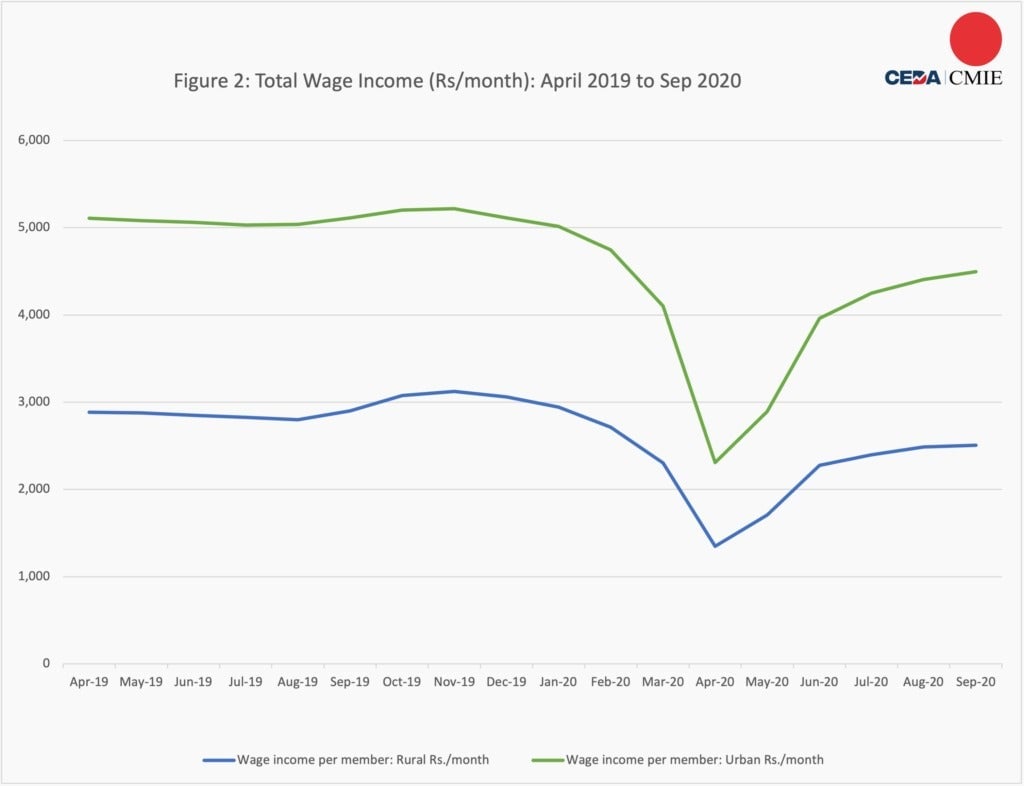Indian household incomes still haven’t recovered from the Covid-19 shock
Indian incomes were on a downward slope—and then came the pandemic.


Indian incomes were on a downward slope—and then came the pandemic.
Household incomes in rural and urban India had begun to shrink from September 2019 owing to an ongoing economic slowdown. But the steepest decline came in April 2020, according to data from business information company Centre for Monitoring Indian Economy (CMIE), which was analysed by Ashoka University’s Centre for Economic Data and Analysis (CEDA).
April was the first full month after the Indian government announced one of the world’s strictest Covid-19 lockdowns on March 24 last year. All economic activity came to a grinding halt, with everything from school and cinema halls to offices and factories completely shut. During April and May, several companies also announced steep pay cuts and layoffs, which corresponds with the CEDA-CMIE findings of household incomes.
The first quarter of India’s financial year (April to June) also saw economic degrowth of 23.9%, the first and largest GDP decline in at least four decades.
“Starting November 2019, total household incomes in rural and urban India were on a declining trend even before the pandemic and lockdown hit but the steepest decline came in the month of April 2020 (the first full month of lockdown) with a decline of 19% and 41% in rural and urban India respectively,” the CEDA-CMIE bulletin noted.

In terms of rural and urban total wages, the shrinkage showed similar trends to total household incomes. But in terms of absolute wages, the decline in rural India (41%) was nearly as steep as that in urban centres (44%).

In subsequent months, after India slowly began “unlocking” in June, the incomes witnessed some recovery. In the case of urban household incomes, there was a sharp V-shaped recovery in the months of May and June. But this growth slowed down and incomes settled at lower than pre-pandemic levels in September.
It could be argued that this scenario improved after September when there was some extent of economic recovery in the months of October and November. But CMIE data show that unemployment numbers rose to over 9% in December, which would have a direct impact on household incomes. “We saw that while employment recovery had been steady till September 2020, it started to falter October 2020 onwards. It can be assumed that income recovery may have faltered between October-December 2020 as well,” the CEDA-CMIE bulletin observed.